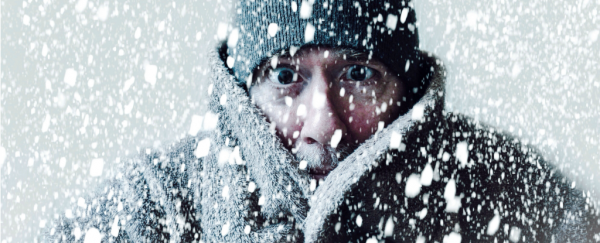Winter isn't the best time for a lot of us. The days get shorter, it's way harder to get out of bed, and studies show we just don't feel as productive when it's cold and rainy outside as they do in the warmer months.
To make matters worse, some people might suffer from Seasonal Affective Disorder (SAD), which means that although their mental health is generally fine, at the same time each year (usually in winter) they could experience depressive symptoms. The jury is still out on how prevalent this is, and even if it's really a thing, but regardless of whether it exists, many people still feel the 'winter blues' as the days get shorter. Not to worry, science has some tips on how to survive (and even enjoy) the next three months.
"As the season begins to change, people can find it difficult to wake up in the mornings. They feel more lethargic or crave carbohydrate-rich, fatty foods," says Greg Murray, a psychologist from Swinburne University of Technology.
"People report an overall lowered mood and energy levels in winter compared to the warmer months, but there are many ways to ease the symptoms."
It might all sound a bit 'new-agey', but science has shown that weather can have a very real, physical affect on our bodies, even changing brain activity in some people.
Unfortunately, there's no magic solution (other than a plane ticket), but here are his tips to surviving winter, mental health intact:
- Try to get at least 1 hour of outdoor light each day, preferably in the morning.
- Keep up your social life. Slot in some social events for the winter months that you can't get out of!
- Keep active by continuing activities such as exercise. Consider a gym membership during the colder months to keep you motivated and make the commitment to meet a friend at the gym.
- Be realistic and understand that your productivity might not be as high as it is in the warmer months. You need to accept that there is an annual cycle, and you may not get as much done during winter.
So there you have it. Winter blues hopefully looked after. But having said that, if you, or someone you care about, is feeling depressed, at any time of year, you should speak to a health care professional.
"Although for most of us the mood and energy changes in winter can be addressed with these simple strategies, we should keep in mind that depression at any time of year can be difficult to shift and may require professional attention," says Murray.
Winter isn't the only time of year that people get a bit weird, as the infographic below points out. But correlation doesn't equal causation, so take some of these results - like crime rates and the full moon - with a grain of salt.
And we definitely don't recommend that you go committing any violent crimes just because it's a hot day. That is definitely not going to hold up in court.

Swinburne University of Technology is a sponsor of ScienceAlert. Find out more about their innovative research.
